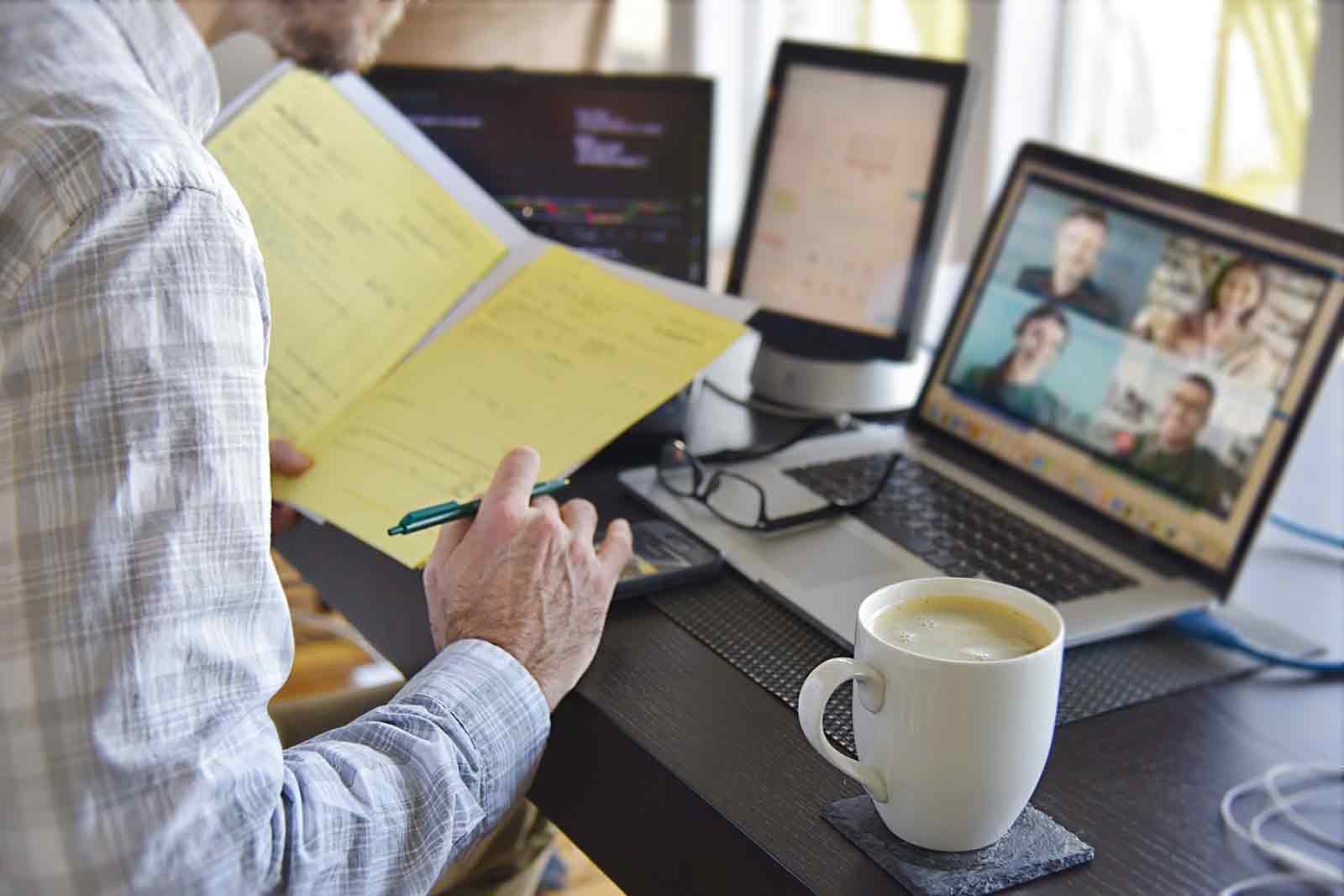
In the midst of court shutdowns and the ongoing pandemic, access to justice for our clients remains of high importance at DILLER LAW. Our attorneys have been continuing to move cases along by holding virtual depositions over Zoom, where witnesses answer questions to prepare testimony for trial.
A deposition is a witness’s sworn out-of-court testimony that is used to gather information and may be used at trial.
We spoke with Attorney David Mehan, who has held virtual depositions. So far, they have all been general discovery depositions to investigate claims and obtain testimony. According to David, even when a reliable vaccine is available for COVID-19, virtual depositions for any civil case may become the norm.
We asked David to share his insights on the process of virtual depositions.
Q: Have you faced any obstacles during the virtual depositions you’ve been a part of?
A: There are of course both pros (discussed below) and cons to having a virtual deposition. On the negative side, there is the concern about technology. Whether it’s the internet being unreliable or the person who is being deposed not having access to the proper technology and equipment. For one of the depositions I did, my client didn’t have access to a webcam. She used her iPhone, which is not ideal for purposes of trying to share exhibits. The reality is, you can still accomplish what you need with an iPhone video camera, it’s just not ideal. Another issue is if there is a spotty internet connection and the video cuts out, it delays things. I, fortunately, have not had this issue with the cases I’ve been involved in so far.
Another concern of attorneys is the idea that there will be misconduct on the other side. There is a possibility that the witness or other party could be looking at their phone while it receives texts or emails. This could influence how the witness answers questions and you are unable to see the device. We hope that the opposing attorneys are acting appropriately and not coaching or signaling a party giving testimony. I believe there are some ways to safeguard against these concerns. An example of this would be to read some stipulations on the record at the outset of the deposition. The witness should agree and understand that they are not allowed to read any documents that are not produced in advance. They should not read their texts or emails and agree to have no other people in the room with them. If their attorney is present in the room, you can require the attorney also have video on their own computer so you can see they are not signaling or trying to coach the witness. Nothing is perfect, but this will limit the possibility of there being improper conduct.
Q: What are some benefits of a virtual deposition?
A: It’s much safer for everyone involved. You can pretty much have an unlimited number of people attend a Zoom deposition. In person for a case with multiple parties, you might have 4-5 lawyers, a videographer, witnesses, and a court reporter. In these times, that amount of people in a conference room would not be able to safely socially distance. Specifically, with witnesses who have vulnerabilities to COVID-19 like pre-existing medical conditions or advanced age, this puts safety first for them.
These depositions are also more convenient. Sometimes, witnesses live far away and it’s difficult to accommodate the distance with scheduling. Other attorneys who are involved can also have busy schedules. It is easier to move forward with a virtual deposition simply because there are fewer delays. Sometimes witnesses are out of state or moved away and we might have to fly to take the deposition. This can substantially increase costs, time, and effort. This pandemic has shed light on the fact that you can now depose anyone who is anywhere in the world with relative ease.
The last advantage I’ve noticed is that virtual depositions may become more cost-effective. Normally, you would have to pay for a court reporter to record the deposition to play at trial. On Zoom, there is a feature to record a meeting yourself, meaning you no longer have to pay for that videographer. In some cases, videographers will go to the witness in person to record, but due to the ongoing safety concerns, most attorneys won’t insist that the videographer go in person to record a client or witness.
Q: Can any case have virtual depositions?
A: Any case can take advantage of this option. The reality is, with the pandemic and order of the courts tolling deadlines for several months, every single case has been delayed. We owe it to our clients to move their cases along. Depositions are a critical aspect of any case and conducting them virtually is going to be the exclusive means for the foreseeable future. As we always say, justice delayed is justice denied! We are obligated, even if it’s uncomfortable, to try to move cases along by taking these depositions.
